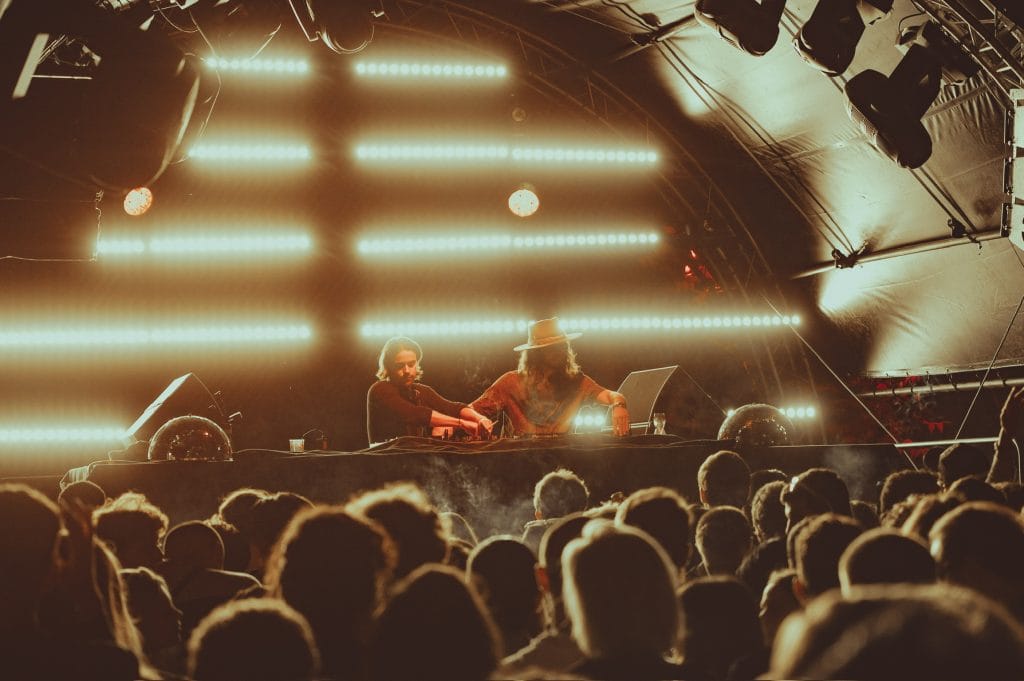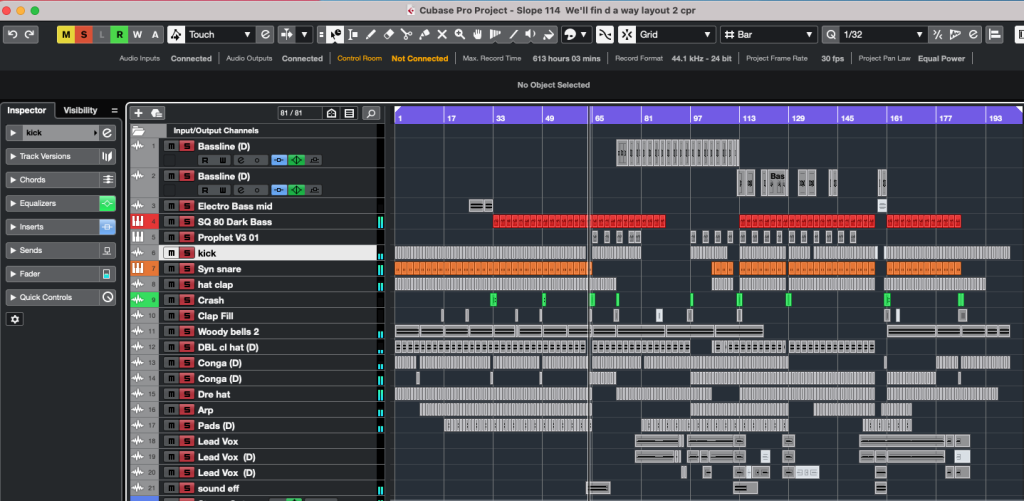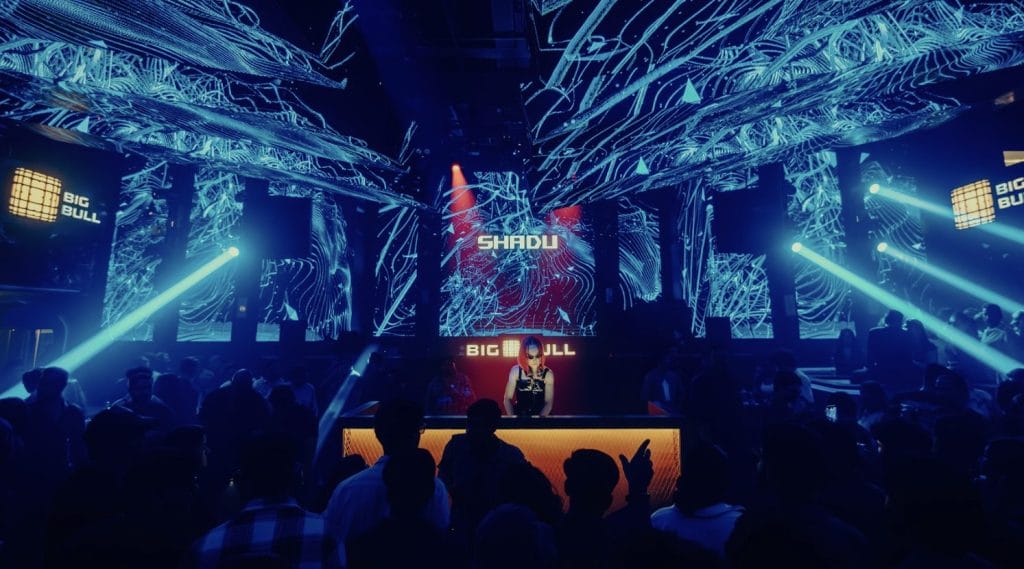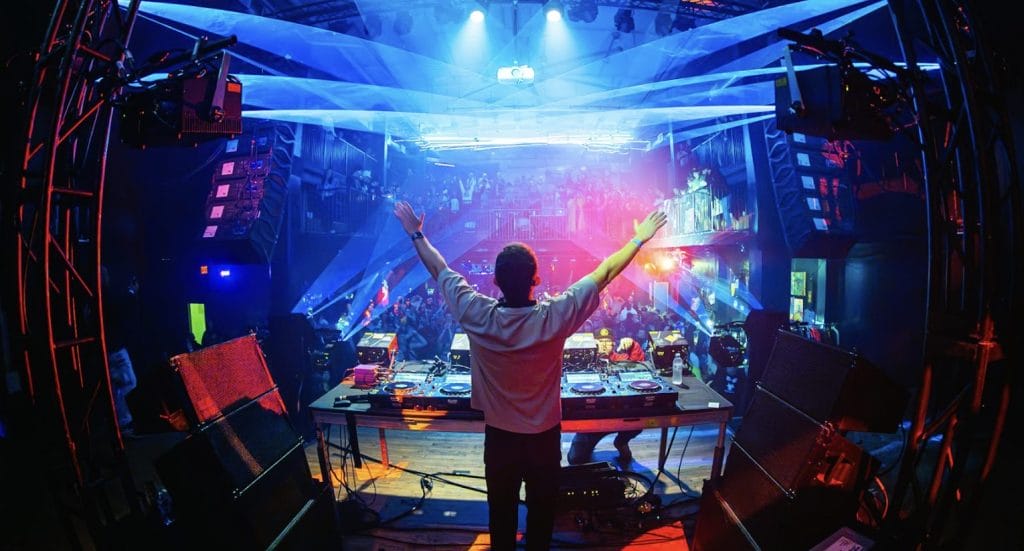Images C/O Anthony Carli
Atlanta’s Jungle Bells has grown from a renegade warehouse night into one of North America’s most respected drum & bass festivals. What started nearly three decades ago with photocopied flyers and a commandeered Kinko’s now brings global legends and underground heroes together under one roof at The Masquerade. Founded in 1998 by Brandon Couturier and MJ Lee, the festival continues to expand without losing the raw, community-driven energy that built it.
FRIDAY DECEMBER 12 AND SATURDAY DECEMBER 13 TICKETS ON SALE NOW HERE
This year’s edition on December 12 and 13 brings more than 70 artists across four stages, pairing pioneers like Roni Size and Dillinja with new-school favorites such as Bou, Goddard, and Andromedik. The team has also announced official afterhours events benefiting the American Foundation for Suicide Prevention, keeping the bass rolling well past sunrise.
In this conversation, Jungle Bells co-founder Brandon Couturier reflects on the origins of the festival, the long-standing partnership that powers it, and how authenticity continues to shape its future.
Interview with Jungle Bells Co-Founder Brandon Couturier
Origin: From Kinko’s to Culture Hub
You’ve joked that Jungle Bells was ‘born in a Kinko’s.’ Can you share what that first renegade event was like — and how it evolved into one of North America’s most respected drum & bass festivals? Can you take us back to that first moment — what was happening in Atlanta’s scene then, and how did that night spark what would become Jungle Bells?
Our first show wasn’t technically a Jungle Bells. It was more of a break-beat-style party. MJ had a friend who owned a sandwich shop, and the two of them decided to, umm, “commandeer” the Kinkos next door for a late-night renegade. MJ talked me into helping out, and that’s how our great friendship began. The first official Jungle Bells happened the following December in an after-hours warehouse we used to throw parties in all the time. MJ was out of town on business in LA, so I was left in charge. There was a guy named Darcy throwing DnB/Jungle nights in Athens, GA, and that totally inspired me to try something similar in Atlanta. What better time than now, right? We only had a week to promote it. There was no social media then… just pounding pavement with photocopied flyers, but somehow the event went off. MJ got back from LA about two hours into the night and instantly fell in love with the sound. Hard to believe that 27 years later, MJ, Darcy, and I are all now partners and still doing what we love.
The Partnership Dynamic
You’ve been doing this together for more than two decades. What’s the key to keeping a creative partnership strong — and how do your personalities or strengths balance each other out when things get intense and when it comes to vision, logistics, and keeping the spirit of the event alive?
MJ and I have been friends forever, through the rough stuff and the good times.
We’ve always shared this wild imagination for what’s possible in our little world. MJ’s got a real gift for hyping what’s hot right now, and I’ve somehow developed this knack for putting together lineups that end up being two-years ahead of the curve. These days, I bounce ideas off MJ and Darcy about what we think will make the best experience for everyone. Not just us, but for the community and the scene. The three of us work great together because we couldn’t be more different, and that’s exactly what makes it click.
We do weekly meetings to keep our vision for Jungle Bells on track. It’s part planning session, part comedy hour. At the end of the day, though, we’re just really close friends who look out for each other and the family of friends we’re blessed to have supporting our vision. Without the community, all our ideas would stay that way… just ideas.
Balancing Legends and the Next Wave
This year’s lineup pairs genre pioneers like Roni Size and Dillinja with rising innovators such as Bou, Goddard, and Andromedik. What’s your philosophy when curating a bill that honors the roots but also moves the sound forward?
We’ve been part of the DnB/Jungle scene since 1998, so this isn’t just something we do… it’s something we love. It’s in our blood at this point. All of us feel it’s important to bring the classics, legends, and pioneers back into the spotlight for the new generation of fans. At the same time, we want the old-school heads to catch the energy of the newer artists who are pushing the sound forward. In the end, it’s all about connecting people through good music, no matter when they joined the journey.
Advice for Emerging Artists
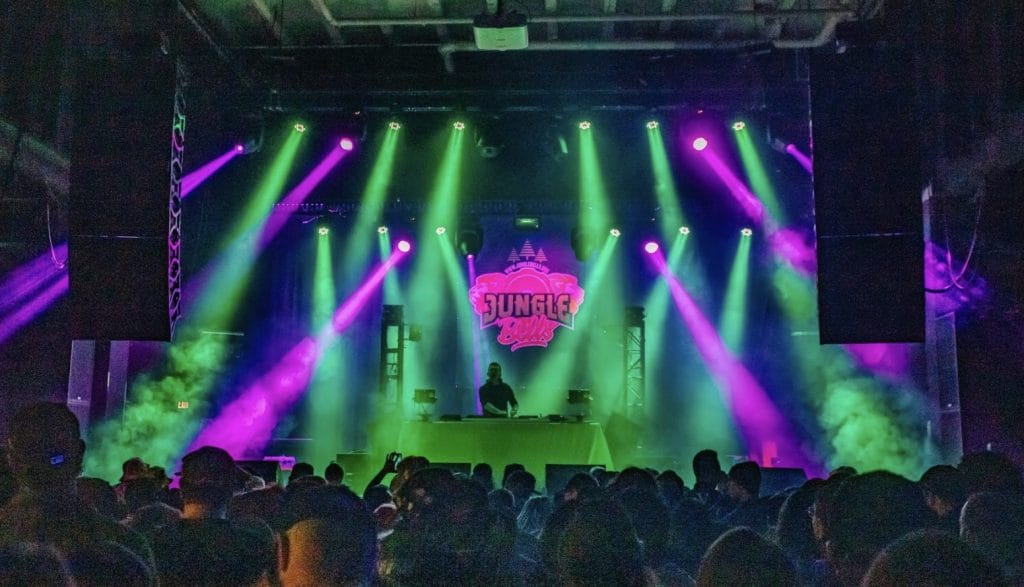
From your perspective as promoters, what can up-and-coming artists do to make a lasting impression — not just musically, but in how they build relationships and show professionalism behind the scenes?
Be humble. Always remember that the community and the fans are what make you, and stay true to your heart. If you’re genuinely feeling what you’re doing, the crowd will feel it too. You can’t fake that kind of energy and, if you try, you’ll get caught. We look for talented, positive people who have that spark – the ones who really believe in what they’re doing. We’re lucky to have our partner, Darcy Reenis, who hosts a bi-monthly event in Atlanta called Torch, where a ton of upcoming talent gets the chance to perform.
If you want to be part of the scene, then get involved in the scene. Support others and they’ll support you. At the end of the day, just be you and believe in what you do.
That level of passion is a beacon.
Community and Authenticity
You’ve said that people are craving the underground again — that real, sweaty, no-BS energy. What does authenticity mean to you in 2025, and how do you keep that spirit alive while still growing year after year?
For us, it’s all about keeping things positive, inviting, and focused on the community experience. Jungle Bells has always felt more like an annual family reunion than just another festival. We try to bring the more well-known, large-room talent that doesn’t tour through our area often. Rather than see them play in a large, impersonal field, we host a more underground, small-room experience. It’s not just for the fans, but for the artists too.
They are as part of this family as everyone else and love it. Sure, it can get a little crowded at times, but we do our best to manage that and never oversell the space. 2025 is shaping up to be one of our most ambitious Jungle Bells yet with about 70 artists on the line-up. Instead of expanding to a new venue and losing the underground spirit, we expanded to two nights while investing more in next-level talent, stage production, sound. Our venue, The Masquerade, has hosted us for decades. They’re family too.
Atlanta is known as a hip-hop capital, yet Jungle Bells has carved out a respected D&B hub. How has community and authenticity played into your growth, and what should artists keep in mind when they’re building a brand in a genre that’s increasingly commercial?
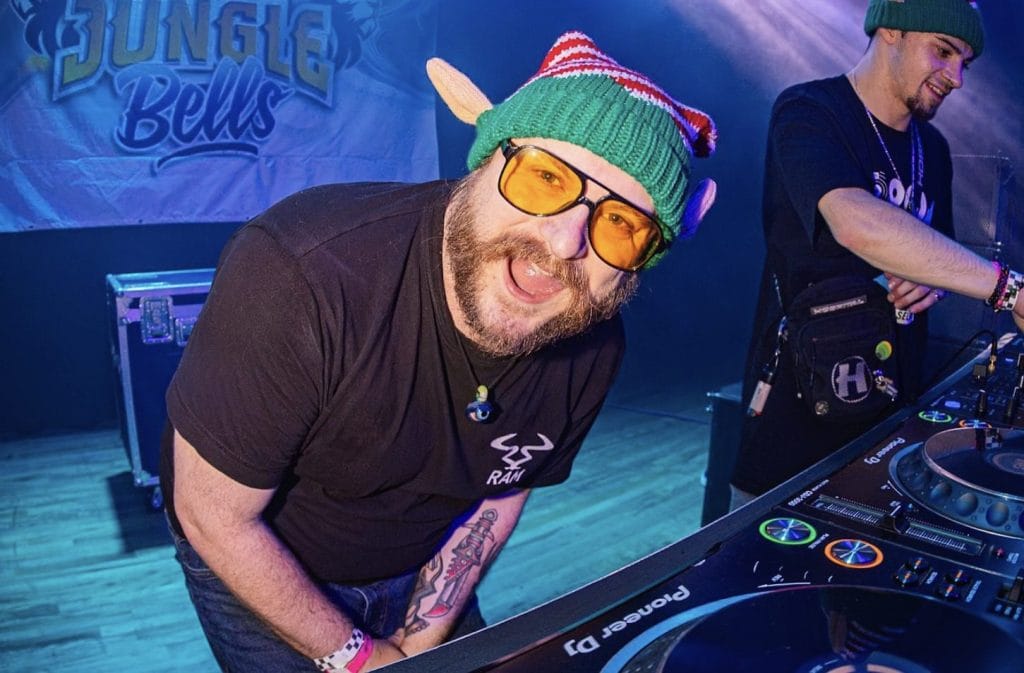
Atlanta has been the home of lots of amazing music over the years and known for putting the South on the map with artists like Outkast to the days of TLC. We’re blessed to work with a ton of Hip Hop producers over the years. I feel like any music can become commercial with the right amount of attention so we would tell any artist or promoter: Just keep it real.
Family, Legacy, and What’s Next
You’ve described Jungle Bells as a family reunion — for artists, fans, and friends from all over the world. What keeps you inspired to keep building this culture, and what’s next for Jungle Bells beyond Atlanta?
Jungle Bells never started as anything more than a gathering. It just grew over the years because fans keep bringing new friends to share the vibes. I know it sounds a little silly, but we’ve actually received hearts from fans who say the vibe reminds them of the old Winter Music Conference days, before Ultra took over. We like to think that if you’ve worked to pay to attend or play at our event, it better be something special. What’s next for us is doing some different events around the US using our formula, because we want to bring Jungle Bells to the fans where they live. The way we see it, MJ will always be out front, greeting fans and thanking them for coming. Not many promoters have that kind of energy anymore. Darcy and I stay busy on the tactical side and DJ ourselves so we’re right there in the mix.
When we decide on which cities in North America will get shows in 2026, our fans will hear about it first. We stay connected with them because we want to make sure they know how much we love them.
The post How Jungle Bells Became North America’s Underground D&B Powerhouse appeared first on Magnetic Magazine.



